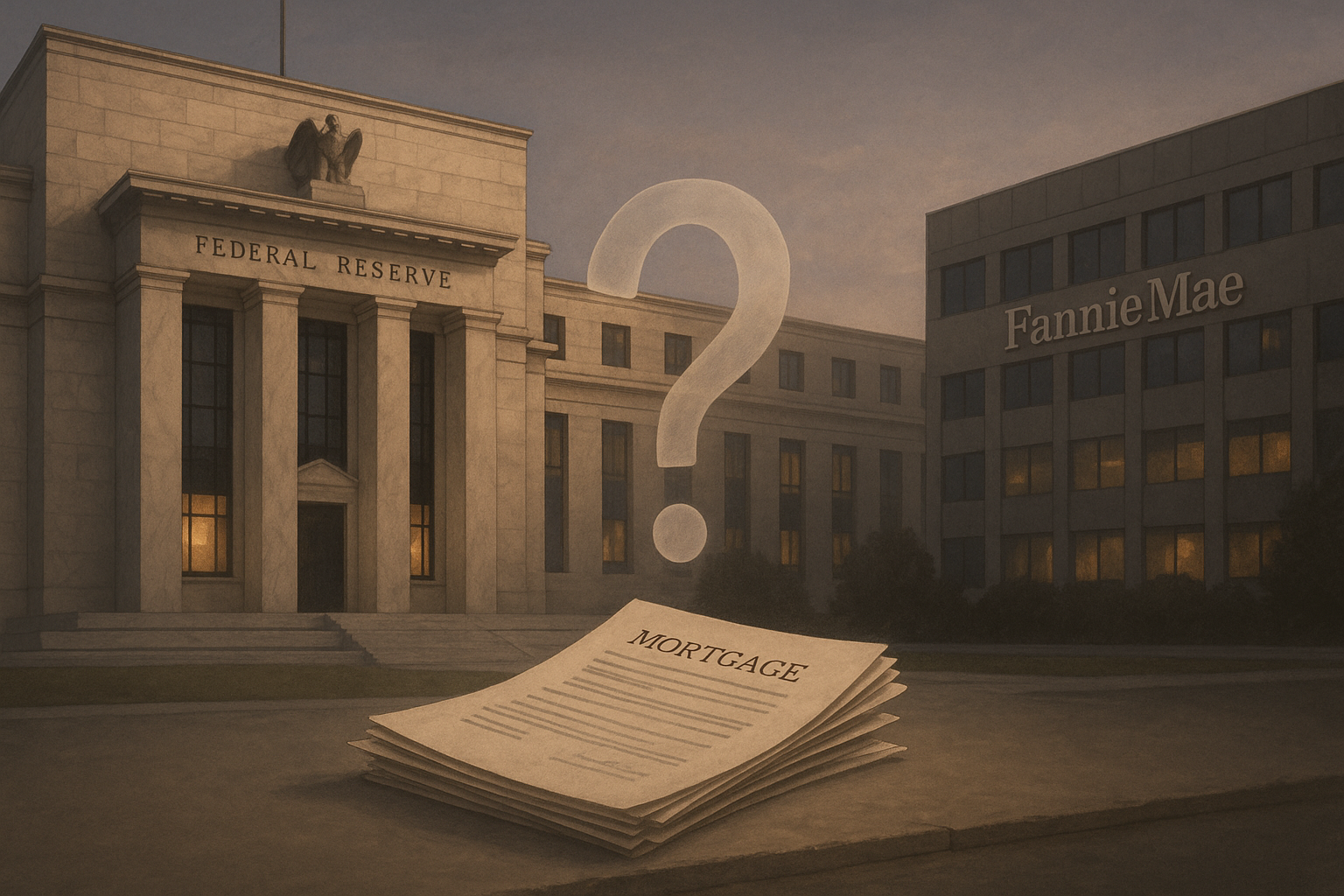In a move that raised more than a few eyebrows across Wall Street yesterday, William J. Pulte, who chairs the board of mortgage giants Fannie Mae and Freddie Mac, issued an unusually terse statement addressing swirling rumors about Federal Reserve Chair Jerome Powell possibly stepping down.
The timing couldn't be more loaded.
I've watched this relationship between the Fed and these mortgage behemoths for years, and it's always reminded me of those awkward high school relationships—totally interdependent but pretending they're just casual acquaintances in the hallway. Powell's Fed has been trying to cool an overheated housing market with its interest rate sledgehammer, while Fannie and Freddie have been desperately working to keep mortgage money flowing. It's complicated, to say the least.
Look, the mortgage market isn't just big—it's absolutely massive. We're talking about $7 trillion in mortgage debt that Fannie and Freddie either hold or guarantee. That's trillion with a T. When Powell makes even the slightest monetary adjustment, these institutions feel it like a seismic wave.
Why did Pulte feel compelled to comment? Well, that's where things get interesting.
The conventional wisdom says any Fed chair transition creates market jitters. But having covered financial transitions since the Greenspan era, I can tell you the reality has more layers than a wedding cake. Markets hate surprises, sure—but they're also constantly pricing in expectations about what's coming next.
If Powell has been signaling a pivot on rates (and many analysts believe he has), his replacement might simply execute the same game plan with slightly different rhetoric. Or they might not! That's the maddening part about these transitions. Until the new chair starts speaking, we're all just reading tea leaves and pretending to understand them.
The mortgage giants have been under government conservatorship since 2008—a supposedly "temporary" arrangement that's now outlasted three presidents. Powell's potential departure could reset the entire conversation about their future, which explains Pulte's sudden urge to weigh in.
"The statement serves both as acknowledgment of market realities and a strategic positioning move," explained Monica Harrington, chief economist at Capital Markets Research, when I spoke with her this morning. "They're preparing for potential turbulence."
And turbulence seems increasingly likely.
Since early 2022, the average 30-year fixed mortgage rate has roughly doubled. For regular homebuyers, that's been about as pleasant as dental surgery without anesthesia. Housing affordability has plummeted, putting Fannie and Freddie in an increasingly difficult position as they try to fulfill their mission of supporting the housing market while maintaining financial stability.
(Side note: Have you tried buying a house lately? It's like participating in a bizarre game show where the rules keep changing and everyone loses except the seller who bought in 2012.)
The question hovering over markets now isn't just whether Powell stays or goes, but what any transition might mean for the Fed's approach to inflation, which has proven stickier than gum on a summer sidewalk.
Powell's Fed has been navigating post-pandemic economic conditions with a mix of aggression and caution—hiking rates dramatically, then pausing, hinting at cuts, then backing away from those hints. It's been... a journey.
"Personnel changes at this level often seem more significant than they actually are," noted James Wilson, former Treasury official, when I caught up with him at a conference last week. "The structural economic realities remain unchanged regardless of who's in the chair."
Maybe. But try telling that to the markets.
For Pulte and the government-sponsored enterprises under his watch, the challenges remain monumental regardless of who heads the Fed. Their fundamental mission—supporting affordable housing—continues to clash with financial stability concerns in ways that no chair appointment can magically resolve.
Meanwhile, markets will react as markets do—with immediate overreaction followed by gradual acceptance of reality. Not great if you're hoping to buy a house in the next few months, but then again, when has timing the housing market ever been anything but frustrating?
The coming weeks should reveal whether these Powell departure rumors have substance or are just another case of Washington whispers growing louder in an echo chamber. Either way, Fannie, Freddie, and every mortgage holder in America are along for the ride.
Buckle up.




